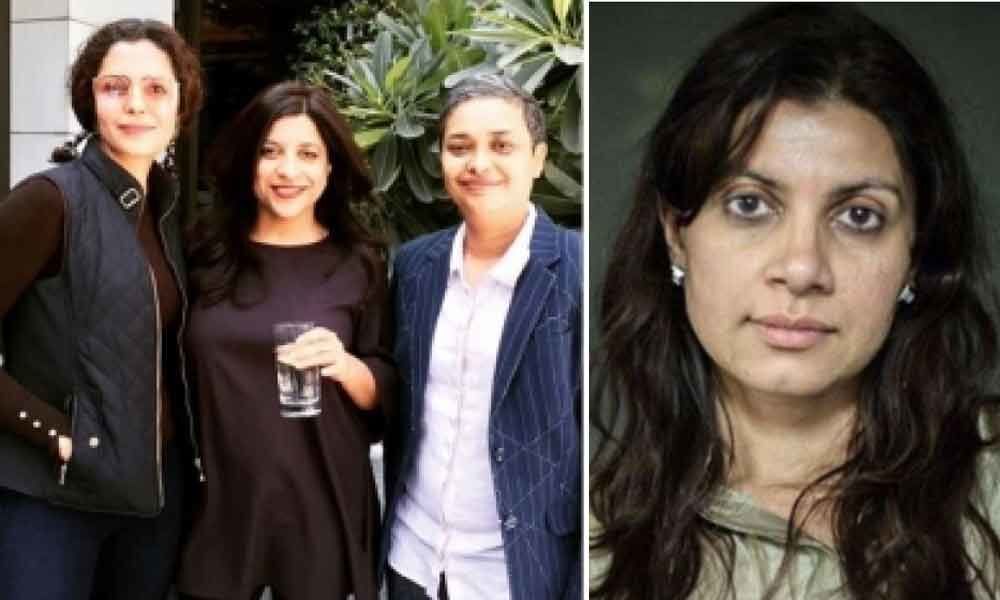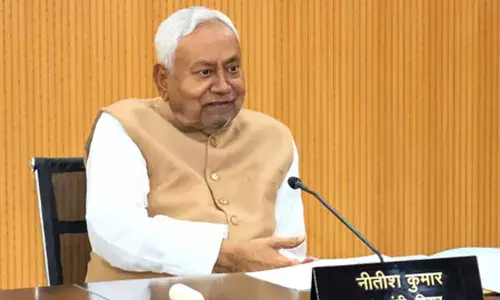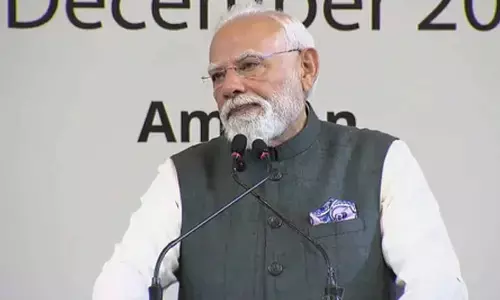India's women filmmakers make a mark in global fest circuit

Standing out among a new generation of Indian filmmakers making waves in the global festival circuit is a brave bunch of female directors who are exploring Indian womanhood across social strata and in all its facets.
Standing out among a new generation of Indian filmmakers making waves in the global festival circuit is a brave bunch of female directors who are exploring Indian womanhood across social strata and in all its facets.
Alankrita Shrivastava, Shonali Bose, Gitanjali Rao, Zoya Akhtar and Tanuja Chandra are adding the new-age relevance and power to the Indian film industry.
They are also addressing issues pertaining to women and society at large with nuanced sensitivity and creativity.
"More and more women should make films. It is very important for the female point of view to be well represented in films. And if a woman is helming the project, there are better chances to portray female-oriented stories in a correct way," Alankrita said.
Interestingly, all these women have become much sought after at international film festivals.
Alankrita's upcoming movie "Dolly Kitty Aur Woh Chamakte Sitare" will have a world premiere at the 24th Busan International Film Festival. Her previous film "Lipstick Under My Burkha" was premiered at the Tokyo International Film Festival.
Gitanjali Rao's "Bombay Rose" will be screened at the Busan International Film Festival, following the world premiere at the 2019 Venice Film Festival.
It also had its North American premiere in the contemporary World Cinema section at the Toronto International Film Festival (TIFF) on September 7.
Shonali Bose's upcoming Bollywood drama "The Sky is Pink", which features actress Priyanka Chopra, will also have its world premiere at TIFF as one of 20 Gala presentations.
Also, "Sangharsh" fame director Tanuja Chandra's "Aunty Sudha Aunty Radha" was screened at the Madrid International Film Festival 2019 and is all set for a US premiere.
Besides, Zoya Akhtar's "Gully Boy" won hearts in South Korea, bagging the Network for the Promotion of Asian Cinema Award at the 23rd Bucheon International Fantastic Film Festival (BIFAN).
The encouraging change in attitude towards female filmmaking has contributed to this aspect. Last year, several major film festivals, including Cannes, Venice and Locarno, signed the 50/50 by 2020 gender parity pledge, which commits festivals to promote gender equality in the industry and to get equal number of men and women in their top management.
According to Alankrita, international screenings that festivals facilitate play a vital role in establishing a name in the world of cinema, especially for female filmmakers.
"We, women directors taking our films to international film festivals, is a great step. It helps in getting more recognition. It's not easy for a woman to enter into filmmaking in India. So I consider international screenings of our films one of our important achievements," she pointed out.
The year 2019 marked great progress in this direction.
Hailing the 50/50 By 2020 movement, Gitanjali Rao said: "It is a great thing to happen. And there is hope that it will continue. This movement to overcome gender parity by 2020 is the best thing to happen to festivals, I feel. Where the change is brought in from the core, not at the surface."
Renowned hair stylist Sapna Bhavnani, who turned filmmaker with her documentary "Sindhustan", feels happy to see Indian women directors making big globally.
She said: "I'm not a fan of using gender as a qualification for anything but the truth is that there are very little of us women out there in the film circuit so it does make me very happy to see so many of us representing internationally and locally."
"Sindhustan", which revolves around Sindhi culture, was premiered at the 2019 Mosaic International South Asian Film Festival.
Among other examples, Tannishtha Chatterjee's directorial debut "Roam Rome Mein", featuring Nawazuddin Siddiqui, will premiere at the Busan Film Festival.
Speaking of Indian women directors, one cannot forget National Award winner Rima Das. Her films "Village Rockstars" and "Bulbul Can Sing" have been highly acclaimed at several international film festivals.
There is, however, a long way to go as women directors continue to face many obstacles, especially in funding.
Tanuja said: "While these are exciting times for women directors, given that the digital space has opened up a whole new territory for us, I do think there still is some resistance in movie making to stories solely about women.
Even when these are green-lit, they have to have well-known stars to get decent funding, and even when they do find producers, they are allotted a much smaller budget then the ones with male stars."
"So while we seem to have traveled some distance in a positive direction, there is still a long way to go before I can exclaim, "Yes, half of the entertainment industry is made up of women!" I do look forward to that day though," she added on a hopeful note.
The new generation of Indian women filmmakers have drawn inspiration from the likes of Indian-origin directors like Deepa Mehta and Mira Nair, besides Kolkata-based Aparna Sen, whose names come foremost to mind while talking about filmmakers who put India and Indianness on the global map.
Deepa Mehta's "Earth" was submitted by India as its official entry for the 1999 Academy Award for Best Foreign Language Film.
Mira Nair's National Award-winning film "Salaam Bombay" won several awards at international film festivals, including at Cannes and Venice.
Aparna Sen, who made her directorial debut in 1981 with "36 Chowringhee Lane", is among the most highly decorated woman filmmakers in India. She is the winner of several National Film Awards and many international film festival ones.
Her "36 Chowringhee Lane" not only received the National Award but also received the Grand Prix at the Manila International Film Festival. Sen's films "Mr. and Mrs. Iyer" and "Paromitar Ek Din" went on to win several awards in the international arena.
Standing behind the camera and calling out "lights, camera, action" is still mainly a man's job. India's female filmmakers, however, have proved time and again that when it comes to crafting beautiful cinematic aesthetics, they often scale rare heights of excellence.














